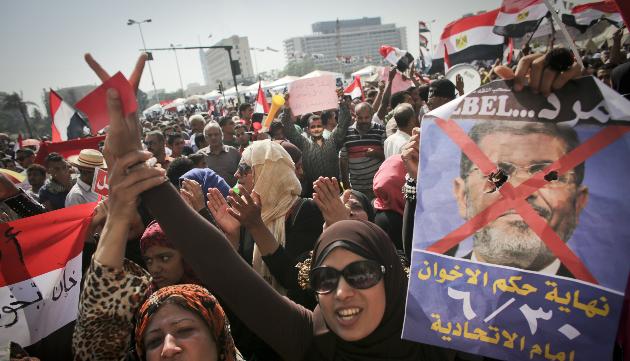In a new London Review of Books essay, Slavoj Žižek, that holy fool, counters the idea that recent global unrest and mass protests are isolated incidents, though his definitions of the Occupy movement and capitalism may vary from yours. An excerpt:
“In 2011, when protests were erupting across Europe and the Middle East, many insisted that they shouldn’t be treated as instances of a single global movement. Instead, they argued, each was a response to a specific situation. In Egypt, the protesters wanted what in other countries the Occupy movement was protesting against: ‘freedom’ and ‘democracy’. Even among Muslim countries, there were crucial differences: the Arab Spring in Egypt was a protest against a corrupt authoritarian pro-Western regime; the Green Revolution in Iran that began in 2009 was against authoritarian Islamism. It is easy to see how such a particularisation of protest appeals to defenders of the status quo: there is no threat against the global order as such, just a series of separate local problems.
Global capitalism is a complex process which affects different countries in different ways. What unites the protests, for all their multifariousness, is that they are all reactions against different facets of capitalist globalisation. The general tendency of today’s global capitalism is towards further expansion of the market, creeping enclosure of public space, reduction of public services (healthcare, education, culture), and increasingly authoritarian political power. It is in this context that Greeks are protesting against the rule of international financial capital and their own c.orrupt and inefficient state, which is less and less able to provide basic social services. It is in this context too that Turks are protesting against the commercialisation of public space and against religious authoritarianism; that Egyptians are protesting against a regime supported by the Western powers; that Iranians are protesting against corruption and religious fundamentalism, and so on. None of these protests can be reduced to a single issue. They all deal with a specific combination of at least two issues, one economic (from corruption to inefficiency to capitalism itself), the other politico-ideological (from the demand for democracy to the demand that conventional multi-party democracy be overthrown). The same holds for the Occupy movement. Beneath the profusion of (often confused) statements, the movement had two basic features: first, discontent with capitalism as a system, not just with its particular local corruptions; second, an awareness that the institutionalised form of representative multi-party democracy is not equipped to fight capitalist excess, i.e. democracy has to be reinvented.
Just because the underlying cause of the protests is global capitalism, that doesn’t mean the only solution is directly to overthrow it. Nor is it viable to pursue the pragmatic alternative, which is to deal with individual problems and wait for a radical transformation. That ignores the fact that global capitalism is necessarily inconsistent: market freedom goes hand in hand with US support for its own farmers; preaching democracy goes hand in hand with supporting Saudi Arabia. This inconsistency opens up a space for political intervention: wherever the global capitalist system is forced to violate its own rules, there is an opportunity to insist that it follow those rules. To demand consistency at strategically selected points where the system cannot afford to be consistent is to put pressure on the entire system. The art of politics lies in making particular demands which, while thoroughly realistic, strike at the core of hegemonic ideology and imply much more radical change. Such demands, while feasible and legitimate, are de facto impossible. Obama’s proposal for universal healthcare was such a case, which is why reactions to it were so violent.”
Tags: Slavoj Žižek

